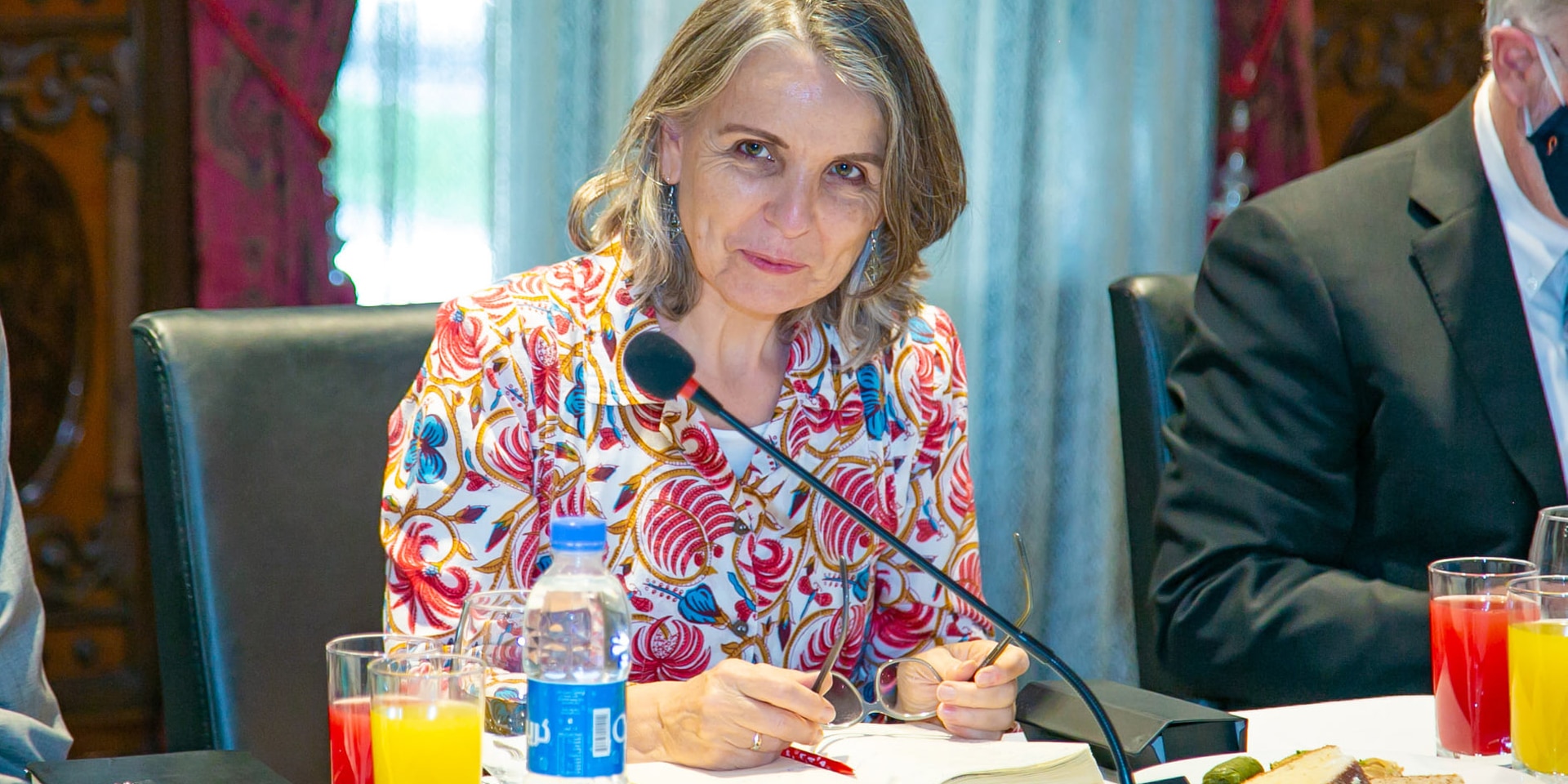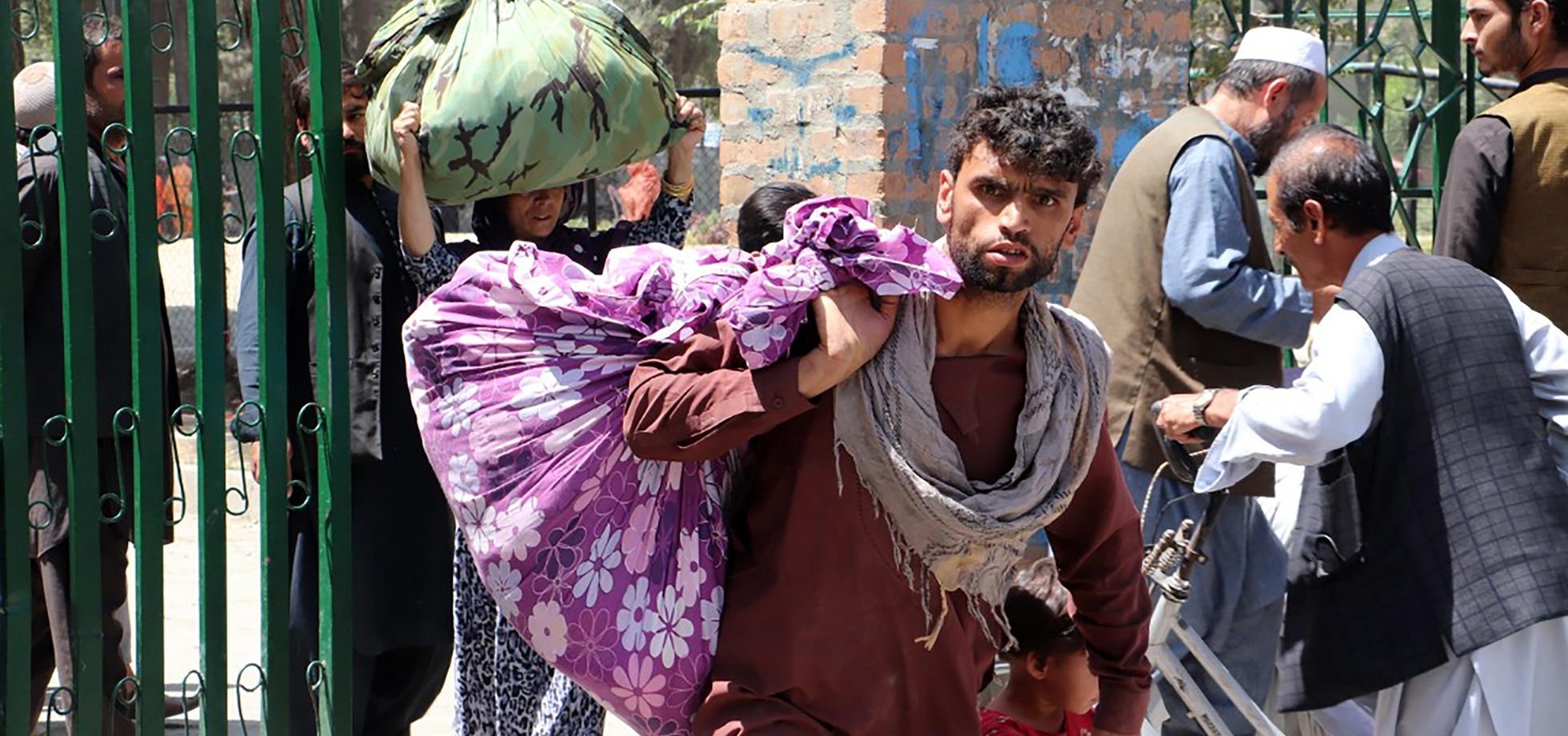"I'm relieved we're back in Switzerland"
All of the Swiss FDFA staff have now returned to Switzerland. They are as well as can be expected under the circumstances, and are working in the KMZ crisis unit to get local colleagues and their families to safety in Switzerland. An interview with the head of the Swiss representation in Kabul, Afghanistan.

Walburga Roos, head of the Swiss representation in Kabul, Afghanistan. © FDFA
Burgi Roos, you returned to Switzerland from Kabul nearly two days ago. What were those final hours like for you?
It was very intense and emotional. My team and I were constantly analysing the situation and adapting our efforts in light of new developments. We had to take decisions with consequences for everyone without a complete overview of the situation. We were all surprised by the speed at which it was happening. In this challenging situation, we had to deal not only with our own fears but also with the emotions and reactions of employees, partners and friends. You can never really be prepared for something like that. So it was vital that I remain present and in control for my team and for myself.
Right now, I'm torn between three emotions. I'm relieved that all six Swiss staff members of the cooperation office are home safe and sound. But I'm worried about our Afghan colleagues and their families, and about all the other Afghans who currently feel threatened in their country. And I'm grateful for all the support we received: from the FDFA under the leadership of the KMZ and the State Secretariat for Migration in Bern, from our embassies in Pakistan, Uzbekistan and Qatar, and above all from our partners who helped with the evacuation. Everyone at every level, in every country, has been very helpful and supportive.
Two other Swiss nationals from the cooperation office in Kabul were evacuated with you last Sunday. How are they doing?
They're doing well, considering the circumstances. We managed this difficult situation together. We all assumed our responsibilities, and we took the most important decisions as a team. Everyone did their best for everyone else. It was a great team effort and everything was handled very professionally.
I attended the KMZ crisis team meeting in Bern on Wednesday 18 August. I'm impressed that after a short break my two colleagues are already back at work in the crisis management team, just a day later. They want to help, to get our local staff and their families, as well as the Swiss nationals who are still in Afghanistan, to safety in Switzerland.
In recent days you've also been in close contact with other countries' representations in Kabul, and were able to cooperate to evacuate people. How does such cooperation work in practice?
We'd been coordinating and have had agreements in place with partner states for some time. In the final days, we were in constant contact. We knew that in the event of a crisis we would be able to take part in these partners' emergency arrangements. On Saturday it was time to go, and we were able to join our German colleagues. As soon as we were physically at the German embassy, Germany took charge of the operation until we were back on European soil. We are extremely grateful to all our US and German colleagues for their support during the departure.
Burgi Roos, head of the Swiss representation in Kabul
Burgi Roos took over as head of the Swiss representation in Kabul this summer in the role of head of cooperation and consul. From 2016 to 2021, she led the Swiss representation in Tajikistan as head of cooperation and consul in Dushanbe. From 2011 to 2014 she was responsible as head of division for Swiss development and humanitarian programmes in the Middle East, North Africa, Iran and the Arabian Peninsula (Yemen) at the SDC's head office in Bern. From 2001 to 2003, she wrote speeches and organised public events for then Federal Councillor Ruth Dreifuss. Burgi Roos holds a doctorate in Modern Arabic Literature, and studied the history of Islam and Arabic literature at the universities of Geneva (Switzerland) and Oxford (UK). She was born and raised in Lucerne (Switzerland).


.jpg)